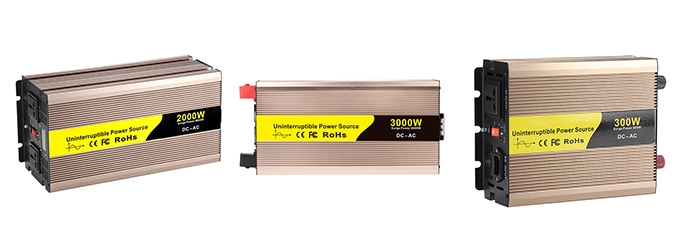An uninterrupted power supply is essential for keeping our electronic devices and sensitive equipment running smoothly. When it comes to backup power solutions, pure sine wave UPS inverters are often considered the gold standard due to their ability to provide clean and stable power. In this blog we will provide you with motor prices, helping you understand what goes into the cost of these crucial devices.

In order for you to better choose UPS, the following are the UPS prices provided by inverter.com.
| Product Name | SKU | Rated power | Price |
| 300 Watt Pure Sine Wave UPS Inverter | ATO-UPSI-300 | 300W | $183.08 |
| 500 Watt Pure Sine Wave UPS Inverter | ATO-UPSI-500 | 500W | $199.33 |
| 600 Watt Pure Sine Wave UPS Inverter | ATO-UPSI-600 | 600W | $204.76 |
| 1000 Watt Pure Sine Wave UPS Inverter | ATO-UPSI-1000 | 1000W | $263.23 |
| 1500 Watt Pure Sine Wave UPS Inverter | ATO-UPSI-1500 | 1500W | $361.25 |
| 2000 Watt Pure Sine Wave UPS Inverter | ATO-UPSI-2000 | 2000W | $367.25 |
| 2500 Watt Pure Sine Wave UPS Inverter | ATO-UPSI-2500 | 2500W | $410.07 |
| 3000 Watt Pure Sine Wave UPS Inverter | ATO-UPSI-3000 | 3000W | $478.57 |
| 3500 Watt Pure Sine Wave UPS Inverter | ATO-UPSI-3500 | 3500W | $557.07 |
Note: The above prices are for reference only. If you need a discount or purchase in bulk, please contact us.
Tips: What factors should I consider when selecting a pure sine wave UPS inverter?
When selecting a pure sine wave UPS inverter, several important factors should be taken into account to ensure that the chosen inverter meets your specific power needs and provides reliable backup power. Here's a detailed explanation of the key factors to consider:
- Capacity (Wattage): The capacity of the inverter, measured in watts (W), is one of the most critical factors to consider. It determines the amount of power the inverter can provide. To choose the right capacity, add up the wattage requirements of all the devices you plan to connect to the inverter. Select an inverter with a capacity that exceeds this total to ensure it can handle the load comfortably.
- Efficiency: Inverter efficiency is crucial for minimizing energy waste during the conversion process. Look for an inverter with high efficiency, typically expressed as a percentage. A more efficient ups inverter will help reduce energy consumption, save on operational costs, and extend the runtime during power outages.
- Features and Technology: Consider the features and technology incorporated into the inverter. Look for additional functionalities that enhance usability and convenience. Features like remote monitoring, LCD displays, multiple outlets, and enhanced battery management can make it easier to manage the inverter and tailor its operation to your needs.
- Battery Type and Capacity: The type and capacity of the batteries used in the inverter are vital considerations. Lithium-ion batteries are becoming increasingly popular due to their longer lifespan and lower maintenance requirements. Higher battery capacity allows for extended runtime during power outages. Assess your backup power requirements and choose an inverter with an appropriate battery system.
- Accessories: Some inverters come with accessories like mounting brackets, connection cables, and surge protection built into the device. Check whether these accessories are included or if they need to be purchased separately. These extras can enhance the functionality and convenience of the inverter.
- Warranty and Support: The length and terms of the warranty provided by the manufacturer should not be overlooked. A longer warranty period and comprehensive support can be a sign of the manufacturer's confidence in their product's quality. A good warranty ensures that you're protected against unexpected failures or issues.
- Compatibility: Ensure that the inverter is compatible with the devices you plan to power during outages. Some highly sensitive or specialized equipment may require specific features or certifications for safe and reliable operation. Verify that the inverter meets the compatibility requirements of your devices.
- Installation and Setup: Determine whether you can install the inverter yourself or if you need a professional electrician for installation. Larger and more complex systems may require professional installation to ensure safety and compliance with local electrical codes. Make installation arrangements accordingly.
- Price: Price is always a consideration. While you should aim to stay within your budget, it's essential not to compromise on quality and performance. Weigh the features, capacity, and brand reputation against the cost to find a balance that suits your needs.
